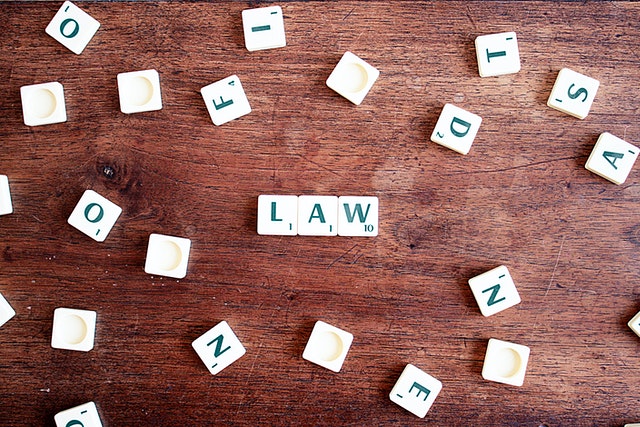The Top 4 Myths About Posting Bail

“Whether you have been arrested, had a family member arrested, or are simply inquiring about information concerning the bail process, you have most likely heard a few myths surrounding getting arrested and posting bail.”
Whether you have been arrested, had a family member arrested, or are simply inquiring about information concerning the bail process, you have most likely heard a few myths surrounding getting arrested and posting bail. Some myths are due to exaggerations in pop culture, others are due to misunderstanding the process, but either way, we are here to clear a few things up. Getting arrested and having to post bail can be scary, but understanding the process can give you peace of mind, make things go faster, and even keep everyone involved out of trouble. In this article, we will look at the top 4 myths surrounding getting arrested and posting bail.
1.) You Will Be Denied Bail
One of the most common fears of people who have been arrested for the first time, especially for a crime that is considered severe, is the idea that they will be denied bail. While rejecting a defendant’s bail for new charges does happen, it happens on rare occasions in cases such as murder, parole violations, probation violations, or other extremely violent crimes. In Colorado, a judge can deny bail if they determine that the defendant’s release would put the public at significant risk. These decisions usually appear in violent cases, as well as extreme sexual assault cases.
The overwhelming majority of defendants are afforded bail. The most common obstacle to posting bail involves one’s ability to come up with the money or collateral needed to do so.
In fact, it is safe to say that almost everyone who is denied bail expects it before heading to court due to the severity of the crime or previous legal obligations. With that said, there are a few loopholes that can extend the time until you get a bail amount set. For example, if you fail to appear in court, a judge may issue a no-bond warrant, which will not allow you to receive a bond until you appear in front of the court. If you happen to be arrested in another county or state, you may have to wait weeks to be transported, effectively rendering you without bail until that time comes.
2.) The "One Phone Call" Myth
Perhaps the most famous arrest/bail myth of all, the “one phone call” myth is not true and is a direct result of misinformation or dramatization when it appears in a movie. While a defendant may have to wait awhile to have access to a phone, they are allowed to make as many phone calls as needed. There may be some stipulations behind this, such as the time of day you have access to the phones, but there is no stipulation that caps the number of calls that can be made.
It is important to know that while you are free to call whoever you want, as much as you want, those calls do tend to cost money after you have made the first call. Either yourself or the other party may have to pay a fee to have a conversation. Most importantly, do not worry that you only have one chance to reach someone before the system eats you up until the duration of your case, because it is merely not true.
3.) The Judge's Opinion Decides Bail
You may have watched this familiar scene in a movie or TV show before. Someone gets arrested, they stand in front of a judge hoping to get bail, and the judge sets an outrageously high bail that is completely unattainable and keeps the defendant in jail indefinitely. The biggest myth in this popular scene is the overall process of how a judge reaches a decision on the amount of bail. Pop culture may lead you to believe that your bail amount is a decision that falls solely on the judge and their attitude that day, but thankfully, that is mostly exaggerated. There is a general guideline for setting bail that can be thought of as a bail algorithm, and judges follow this. Within this algorithm, some crimes tend to have a set bail amount while the factors surrounding the accused party will determine how much a judge deviates from the set bail amount. A few things that judges tend to consider when altering the bail amount include:
- Failure to appears.
- The persons standing in the community.
- Their age.
- Criminal history.
- Job-status.
- The severity of the accused crime.
If you are a first time offender, judges may skip the suggested bail amount and give you a PR bond. The most important thing to take away from this is that your bond amount depends not entirely on a judge’s attitude towards you or your case. There is a method to the madness.
4.) There Are No Conditions To Bail
If you are posting bail for the first time, one of the most surprising aspects of the process revolves around the amount of responsibility that falls on your shoulders to keep you out of jail. You may have witnessed someone post bail in a movie and be done with the case until it is time for trial; unfortunately, that is not how it works. When you post bail, you may find yourself in a very similar situation to being on probation. You may have to submit urine tests, breathalizers, and even do weekly check-ins. Along with this, your bond is entirely contingent on your ability to make your court dates. Miss a court date, and the judge has the right to revoke your bond and send you back to jail.
Conclusion
Getting arrested and having to post bail is scary, but it is largely a completely different process than most common myths, movies, and pop culture suggests. If you find yourself in a situation where bail is needed, being informed about the process and ensuring that you follow through with things will be all that you need to keep yourself safe, healthy, and out of custody. If you have any questions about the bail process, please do not hesitate to reach out to us here at Angels & Outlaws Bail Bonds.
More Blogs
The Process Of An Arrest
If you have ever been arrested, you know that it can be a long and scary process. If you have never been arrested, it can make that process even worse. In this article, we discuss what happens during the process of an arrest so you have an idea of what to expect.
What Is A Fugitive Recovery Agent?
Court rolls around, they are nowhere to be found, and now the system says that you are responsible for paying the full bail amount. What do you do?
The Top 4 Myths Surrounding Bail
If you have been arrested or are simply inquiring about information concerning the bail process, you have most likely heard myths about bail.



